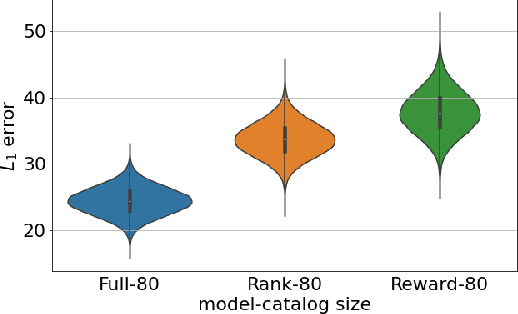Diego Legrand
Combining Reward and Rank Signals for Slate Recommendation
Jul 29, 2021



Abstract:We consider the problem of slate recommendation, where the recommender system presents a user with a collection or slate composed of K recommended items at once. If the user finds the recommended items appealing then the user may click and the recommender system receives some feedback. Two pieces of information are available to the recommender system: was the slate clicked? (the reward), and if the slate was clicked, which item was clicked? (rank). In this paper, we formulate several Bayesian models that incorporate the reward signal (Reward model), the rank signal (Rank model), or both (Full model), for non-personalized slate recommendation. In our experiments, we analyze performance gains of the Full model and show that it achieves significantly lower error as the number of products in the catalog grows or as the slate size increases.
A Comparison of the Taguchi Method and Evolutionary Optimization in Multivariate Testing
Aug 25, 2018



Abstract:Multivariate testing has recently emerged as a promising technique in web interface design. In contrast to the standard A/B testing, multivariate approach aims at evaluating a large number of values in a few key variables systematically. The Taguchi method is a practical implementation of this idea, focusing on orthogonal combinations of values. This paper evaluates an alternative method: population-based search, i.e. evolutionary optimization. Its performance is compared to that of the Taguchi method in several simulated conditions, including an orthogonal one designed to favor the Taguchi method, and two realistic conditions with dependences between variables. Evolutionary optimization is found to perform significantly better especially in the realistic conditions, suggesting that it forms a good approach for web interface design in the future.
 Add to Chrome
Add to Chrome Add to Firefox
Add to Firefox Add to Edge
Add to Edge